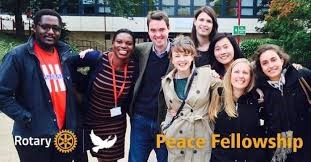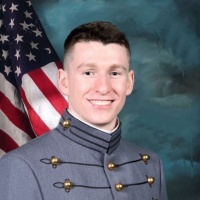
Through academic courses, field experience, and global networking opportunities, the Rotary Peace Fellowship programs develop the capacity of peace and development professionals to prevent and resolve conflict. The fellowships cover tuition and fees, room and board, round-trip transportation, and all internship and field-study expenses.
Since the programs began in 2002, Rotary Peace Centers have trained 1,400 fellows who work in more than 115 countries. Many serve as leaders in governments, NGOs, the military, education, law enforcement, and international organizations like the United Nations and the World Bank.
Our fellowships
Rotary Peace Fellowships are designed for leaders with work experience in peace and development and from fields that involve environmental issues, education and literacy, women’s rights, journalism, public health, law, law enforcement, military or disease prevention.
Each year, The Rotary Foundation awards up to 50 fellowships for master’s degrees -- and 80 for professional development certificate studies -- at a premier university in Japan, the United Kingdom, Australia, Sweden, Uganda or Thailand.
Master’s degree programs
Applicants must have at least three years of relevant full-time experience. Accepted candidates study peace and development issues with research-informed teaching and a global student body. The programs last 15 to 24 months and include 2-3-month field study between the first and second academic year. The approximate value of the master’s program is $75,000.
Professional development certificate program
The program, which runs 12 to 15 weeks, is for individuals working as police officers, school counselors, public health and disease prevention professionals or journalists with at least five years of relevant full-time experience in peace or development. The program blends online learning, in-person classes, and an independent project based at a Rotary Peace Center in Thailand or Uganda.
Eligibility and restrictions
Candidates for either program must have a bachelor’s degree, demonstrate leadership skills, and have a strong commitment to cross-cultural understanding and peace. Peace Fellowships may not be used for doctoral study.
Rotarians and Rotary spouses, children and grandchildren are not eligible. Districts and clubs may endorse as many candidates as they wish. There is no charge to districts or clubs, and The Rotary Foundation covers all eligible costs.
Rotary Peace Fellowship approach
We see peace not as an abstract concept but as a living, dynamic expression of human development. Peacebuilding is a cornerstone of our mission as a humanitarian service organization, and it is one of our six areas of focus — the channels of activity through which our members make their mark on the world. Our programs, grants and fellowships focus on creating environments where peace can be built and maintained. Rotary believes that if concerned citizens work together to create peace locally, lasting change can happen globally.






 Indiana’s three Rotary districts select Cadet Noah Jager as 2024-25 Rotary Global Grant Scholar and The Rotary Foundation has confirmed Noah Jager as the 2024-25 All-Indiana Rotary Global Scholar. Noah recently graduated from West Point Naval Academy. The three Indiana Rotary districts chose Noah over five other outstanding finalists following January 20 interviews. Noah, endorsed by Bloomington Sunrise Rotary, will use the $40,000 award to pursue a master’s degree in International Peace and Security from King’s College London. Noah’s area of focus: Peacebuilding and Conflict Prevention.
After receiving his master’s degree, Noah will serve as an officer in the U.S. Army for a minimum of five years on active duty and three years in the reserves. In his first duty position, Noah will serve as a Military Intelligence Officer specializing in strategic intelligence. After serving in this role, he hopes to become a Foreign Area Officer (FAO), providing liaison with countries in an assigned region through policymaking, military cooperation, and community engagement. Later, Noah plans to return to Indiana where he will practice law and serve in the Indiana National Guard. Ultimately, he plans to address the needs of Hoosiers by serving in the U.S. Congress.
Indiana’s three Rotary districts select Cadet Noah Jager as 2024-25 Rotary Global Grant Scholar and The Rotary Foundation has confirmed Noah Jager as the 2024-25 All-Indiana Rotary Global Scholar. Noah recently graduated from West Point Naval Academy. The three Indiana Rotary districts chose Noah over five other outstanding finalists following January 20 interviews. Noah, endorsed by Bloomington Sunrise Rotary, will use the $40,000 award to pursue a master’s degree in International Peace and Security from King’s College London. Noah’s area of focus: Peacebuilding and Conflict Prevention.
After receiving his master’s degree, Noah will serve as an officer in the U.S. Army for a minimum of five years on active duty and three years in the reserves. In his first duty position, Noah will serve as a Military Intelligence Officer specializing in strategic intelligence. After serving in this role, he hopes to become a Foreign Area Officer (FAO), providing liaison with countries in an assigned region through policymaking, military cooperation, and community engagement. Later, Noah plans to return to Indiana where he will practice law and serve in the Indiana National Guard. Ultimately, he plans to address the needs of Hoosiers by serving in the U.S. Congress.